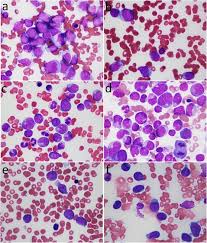Have you ever wondered how a tiny chromosomal alteration can lead to life-altering conditions? One such alteration, known as the Philadelphia Chromosome, has revolutionized our understanding of genetic diseases, particularly certain types of leukemia. This genetic abnormality is not just a footnote in medical textbooks—it’s a crucial clue in the fight against cancer.
In this blog, we’ll dive into the causes of Philadelphia Chromosome, explore its effects on the body, and discuss its role in medical advancements. From its discovery to its significance in diagnosing and treating Chronic Myelogenous Leukemia (CML), this deep dive will unravel the mysteries behind this genetic anomaly.
What Is the Philadelphia Chromosome?
The Philadelphia Chromosome is a specific genetic mutation caused by a translocation—a process where parts of two chromosomes swap places. In this case, a piece of chromosome 9 exchanges genetic material with chromosome 22. The result? An abnormally shortened chromosome 22 contains a fusion gene known as BCR-ABL1, which produces a protein that drives uncontrolled cell growth.
Discovered in 1960 by researchers in Philadelphia (hence the name), this chromosomal anomaly was the first direct link between a genetic mutation and cancer. It’s now known as the hallmark of Chronic Myelogenous Leukemia (CML) and is also found in a subset of acute lymphoblastic leukemia (ALL) cases.
Causes of Philadelphia Chromosome
The causes of Philadelphia Chromosome stem from a random error during cell division. This error leads to the translocation of genetic material between chromosomes 9 and 22. While the exact reason for this error remains unclear, several factors may contribute:
- Age: The risk of developing conditions associated with the Philadelphia Chromosome increases with age.
- Environmental Exposures: Prolonged exposure to radiation or certain chemicals may increase the likelihood of genetic mutations during cell division.
- Spontaneous Mutations: In most cases, the translocation happens sporadically without any identifiable external cause.
Unlike inherited genetic mutations, the Philadelphia Chromosome is not passed down from parents to children. Instead, it occurs as a somatic mutation, affecting only specific cells in the body.
The Effects of the Philadelphia Chromosome
The presence of the Philadelphia Chromosome sets off a cascade of biological changes with profound effects on health.
1. Uncontrolled Cell Growth
The fusion gene BCR-ABL1 created by the translocation produces an abnormal tyrosine kinase enzyme. This enzyme is constantly active, signaling cells to divide uncontrollably, a hallmark of cancer.
2. Development of Chronic Myelogenous Leukemia (CML)
CML is the most common condition associated with the Philadelphia Chromosome. It primarily affects white blood cells, causing their overproduction and interfering with normal blood cell function.
3. Impact on Other Leukemias
While less common, the Philadelphia Chromosome can also be present in acute lymphoblastic leukemia (ALL) and occasionally in acute myeloid leukemia (AML). In these cases, it leads to more aggressive disease progression.
How Is the Philadelphia Chromosome Detected?
Detecting the Philadelphia Chromosome is critical for diagnosis and treatment planning. Medical professionals use a combination of techniques to confirm its presence:
-
Cytogenetic Testing
This involves analyzing a patient’s chromosomes under a microscope to detect the translocation between chromosomes 9 and 22.
-
Fluorescence In Situ Hybridization (FISH)
FISH uses fluorescent probes to highlight the BCR-ABL1 fusion gene, making it easier to identify the chromosomal alteration.
-
Polymerase Chain Reaction (PCR)
PCR amplifies genetic material to detect the BCR-ABL1 fusion gene with high sensitivity, even when present in very small quantities.
These diagnostic tools not only confirm the presence of the Philadelphia Chromosome but also help monitor disease progression and treatment effectiveness.
Treatment Options for Philadelphia Chromosome-Positive Leukemias
The discovery of the Philadelphia Chromosome led to groundbreaking advancements in targeted therapies. Unlike traditional chemotherapy, these treatments focus on the specific molecular pathways involved in the disease.
1. Tyrosine Kinase Inhibitors (TKIs)
TKIs, such as imatinib (Gleevec), target the abnormal tyrosine kinase enzyme produced by the BCR-ABL1 fusion gene. By blocking this enzyme’s activity, TKIs effectively halt the uncontrolled cell growth caused by the Philadelphia Chromosome.
2. Bone Marrow Transplantation
For some patients, particularly those who don’t respond to TKIs, a bone marrow transplant may offer a potential cure. This involves replacing the diseased bone marrow with healthy donor cells.
3. Combination Therapies
In the case of Philadelphia Chromosome-positive ALL, combining TKIs with chemotherapy has shown improved outcomes. Clinical trials are continually exploring new combinations to enhance effectiveness.
The Role of Clinical Trials
Clinical trials have been instrumental in advancing treatments for Philadelphia Chromosome-positive leukemias. These studies evaluate new drugs, dosages, and treatment combinations, offering patients access to cutting-edge therapies.
For example, trials focusing on second and third-generation TKIs have provided options for patients who develop resistance to first-line treatments. Similarly, immunotherapy trials are investigating ways to harness the immune system to target cancer cells more effectively.
Participating in clinical trials not only benefits individual patients but also contributes to the broader fight against leukemia by paving the way for future breakthroughs.
Living with Philadelphia Chromosome-Positive Leukemias
A diagnosis of leukemia involving the Philadelphia Chromosome can be life-changing, but advances in treatment have significantly improved outcomes. Many patients achieve long-term remission and maintain a good quality of life with the right treatment plan.
Support from healthcare providers, family, and support groups is crucial in navigating the challenges of living with this condition. Education about the disease, treatment options, and potential side effects empowers patients to take an active role in their care.
Future Directions in Research
The study of the Philadelphia Chromosome continues to inspire new avenues of research. Scientists are exploring ways to overcome resistance to TKIs, enhance early detection methods, and develop therapies with fewer side effects.
Gene-editing technologies like CRISPR also hold promise for correcting the genetic errors underlying the Philadelphia Chromosome, potentially offering a cure for certain cases of leukemia.
You may also read: How Advanced Inventory Management Software Is Transforming Clinical Trials
Conclusion
The Philadelphia Chromosome, a seemingly small genetic error, has profound implications for human health. Driving the development of leukemias like CML and ALL, it has challenged researchers to innovate and improve treatments. The discovery of the causes of Philadelphia Chromosome and its effects has not only deepened our understanding of cancer but also transformed how we approach its management.
Advancements in targeted therapies, such as TKIs, and ongoing research through Chronic Myelogenous Leukemia Clinical Trials continue to bring hope to patients worldwide. If you or a loved one is navigating a diagnosis involving the Philadelphia Chromosome, exploring clinical trial options with your healthcare provider can open the door to cutting-edge treatments and a brighter future.



